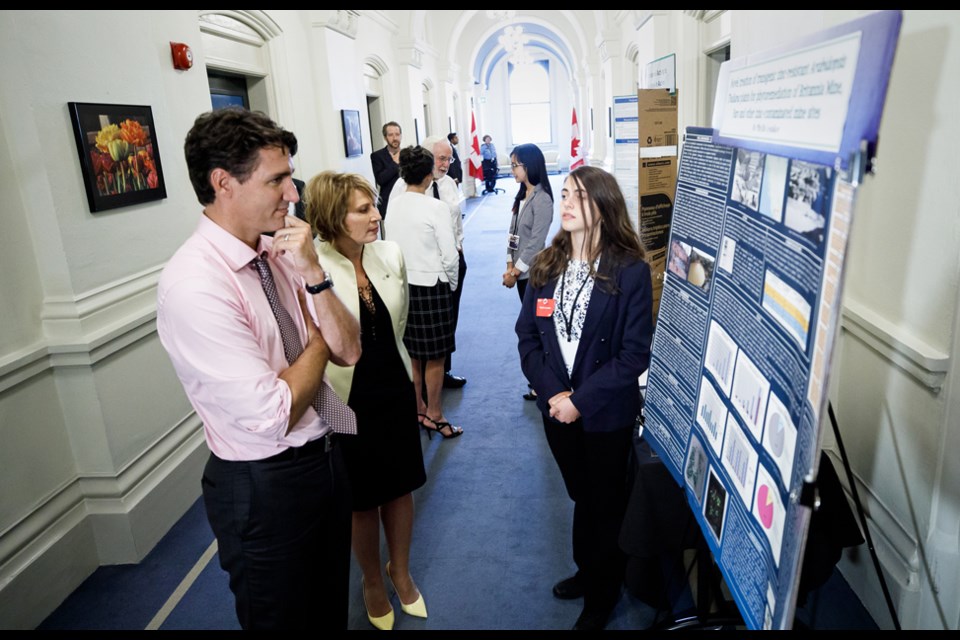One of these days, 17-year-old Phyllis Lesnikov hopes to genetically engineer a plant capable of sucking toxic metals out of contaminated mine sites.
In a way, the Burnaby teen has been working on the problem since her first science fair project in Grade 9, when she set out to measure metal contamination at the old Brittania Mine site in Squamish.
“For whatever reason, I became interested in the effect of metal contamination on plants,” she said of that first bit of research.
Lesnikov, now a Grade 12 student who attends Stratford Hall in East Vancouver, has been exploring the topic at regional and national science fairs ever since.
Her most recent work earned her an invitation to Canada’s first ever Prime Minister’s Science Fair in Ottawa this fall, complete with a one-on-one with Prime Minister Justin Trudeau.
“He was very charismatic. He had a very good handshake,” Lesnikov said.
While her project was set up in the hallways at Parliament Hill on Sept. 26, the local teen also got to rub shoulders with Science Minister Kirsty Duncan and Canada’s new chief science advisor Mona Nemer among others.
“I got to meet real people that influence policy in Canada and that work in administration on Parliament Hill,” Lesnikov said. “I always asked them about their careers because I just found it so interesting that I was meeting these people.”
Lesnikov was nominated to attend the Prime Minister’s fair by the Canada-Wide Science Fair after she won the environment category at the national competition in Regina in May.
Her project, titled Phytoremediation of Zinc Contaminated Mines Using Novel Transgenic A.Thaliana, involved the local teen genetically engineering a common weed for metal resistance.
“Normal plants would tend to die from metal contamination, and the plant that I developed won’t die, in short,” she said.
She’s been working on the project for about a year at a lab in UBC’s botany department.
“I didn’t have any personal connections that would enable me to do such work, so definitely had to pitch myself, and I had to get in touch and be willing to get rejected,” she said.
Lesnikov hopes to study sciences at UBC next year and continue her project with the goal of one day developing a plant that could naturally remove metal contamination from soils at old mines.
“I find it crazy that plants could be able to handle metal better than we do, and when I read about metal resistance in plants, it’s just extremely interesting to me, and that’s kind of what drives me,” she said.
“The fact that I get to make a difference in the world with it, that I could have the opportunity to do that is also something that I really enjoy about the work that I do.”



